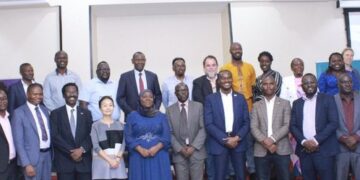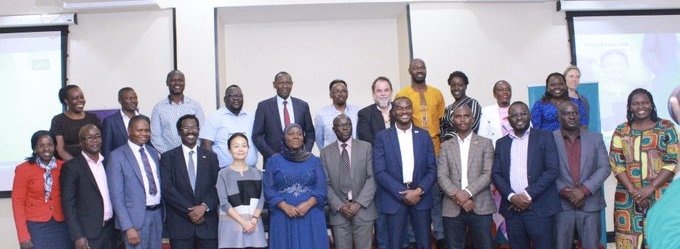The government of Uganda together with local non-governmental organizations under the NGO Forum, are advocating for at least 25% of humanitarian aid to be directly focused on supporting leadership, delivery, and capacity development of local responders.
This arrangement is part of broader efforts to address the global humanitarian funding gap, expand resource availability, and reduce needs. In 2015, Uganda received a total of USD 166 million in humanitarian aid, but only 11% reached local and national humanitarian actors. In 2016, only 13% of USD 319.3 million reached local actors, while the percentage dropped to 8% in 2017. This demand is tied to the quality funding pillar of the Grand Bargain initiative.
Speaking at the inaugural country annual Grand Bargain meeting for Uganda, themed “Advancing Localization and Sustainable Humanitarian Impact through Quality Funding and Equitable Partnerships,” Hajjat Minsa Kabanda, the Minister for Kampala Metropolitan Affairs, emphasized the urgent need for localizing humanitarian aid. She noted that Uganda’s open-door policy to refugees and its vulnerability to natural disasters make localization crucial.
“Uganda remains a global model in hosting refugees and supporting disaster-affected communities. The country continues to prioritize localization and long-term recovery in its humanitarian policy framework,” Kabanda said. She was representing Rukia Nakadaama, the third deputy prime minister.
She highlighted Uganda’s robust humanitarian policies, including the National Disaster Risk Management Policy and the Comprehensive Refugee Response Framework, which empower local actors to take ownership in managing crises.
The Grand Bargain meeting aims to further dialogue and action on strengthening localization and equitable partnerships in humanitarian responses across Uganda and beyond.
During the same meeting, Lillian Aber, the state minister for disaster preparedness and refugees, revealed that Uganda’s refugee population has risen to 1.7 million. However, funding levels have decreased to the point of food shortages. She suggested that localizing aid could help address these challenges.
On behalf of local and national humanitarian organizations, Joyce Julian Acoko expressed gratitude for the collective focus of humanitarian actors, government, and donors on a common objective. She stressed that the 25% localization target must become a reality.
Moses Isooba, Executive Director of the National NGO Forum, said that the design of interventions without local participation undermines ownership. He said this must stop to ensure sustainability.
On behalf of international NGOs, Miyuki Sato, Country Director for Save the Children, supported the move towards localization, stating that it would strengthen partnerships and create lasting impact.









